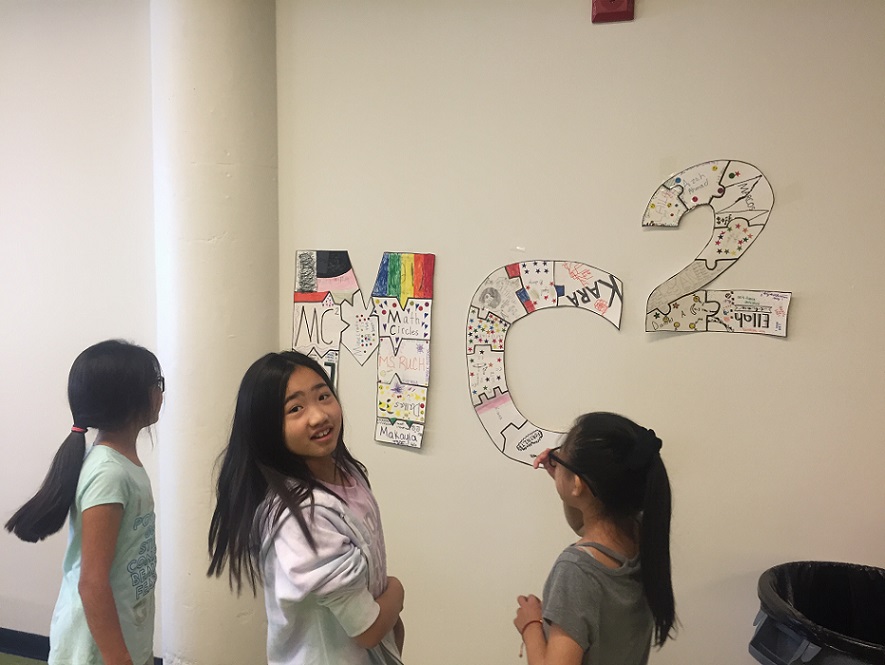
Math Circles of Chicago: Where Kids Learn that Math is for Everyone
Math Circles of Chicago (MC2) offers math enrichment to the youth of Chicago, free of charge. The activities on offer are so much fun that according to Executive Director Doug O’Roark the kids often don’t even realize they’re learning math. We live in a high-tech world, which makes it more important than ever to ensure that kids from every sector have access to quality STEM programming. This was reason enough, in our view, to lend a hand to MC2by way of our small grants program.
We spoke with Doug O’Roark to learn more about the important work of Math Circles of Chicago:
Kars4Kids: Tell us about your demographic—the kids you serve.
Doug O’Roark: We serve 5th to 12th graders across Chicago. We are trying to make high quality math enrichment available to anyone interested. We believe the focus of math class and math/STEM enrichment programs often send the message that math isn’t for everyone. Math IS for everyone.
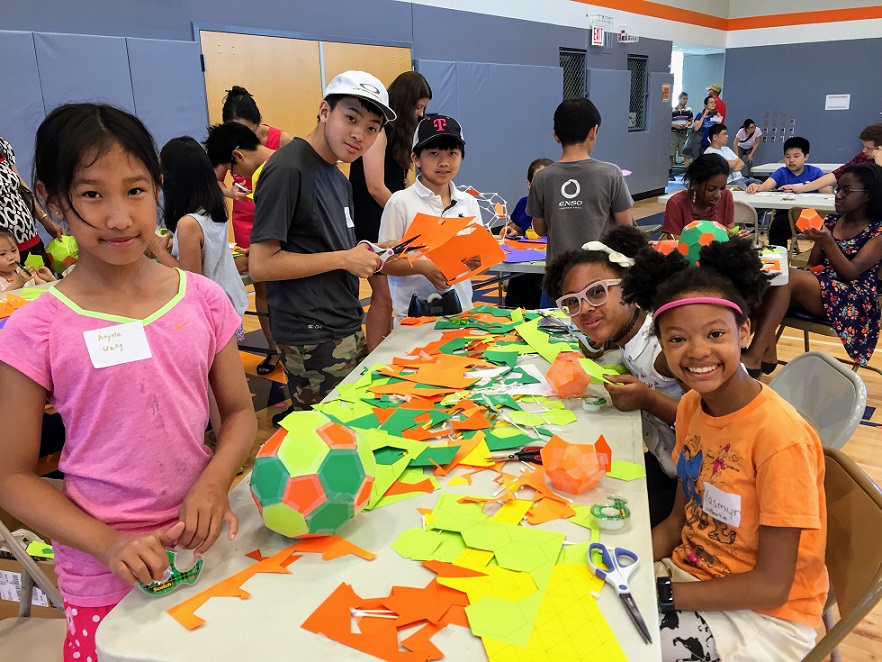
Kars4Kids: Your website talks about creating opportunities for kids to develop a passion for mathematics. Some children may actually be frightened of math—especially if they are more “right-brained”—and with dyslexia so prevalent, it’s likely that dyscalculia is also an issue for many children. How does your programming overcome what seems to be a kind of math phobia?
Doug O’Roark: We have a heavy focus on community building. Relationships and strong norms are important. We want to create a culture where mistakes are seen as valuable opportunities to learn. Creating such a culture requires teachers who really know what they are doing; we have a strong teacher community that talks about teaching, reflects about their teaching experience at MC², who attend workshops, and who seek out and receive one on one coaching.
Our activities are designed to be accessible. The math we do is significant, important mathematics. But the experience itself is usually given through the context of a game or a puzzle. Anyone can join in. These games and puzzles are often physical—every math circle teacher has a collection of cards, dice, games, folding paper, coins, etc., etc. Sometimes our kids wonder why they aren’t doing math (trust us, they are).
“Our kids wonder why they aren’t doing math (trust us, they are)”
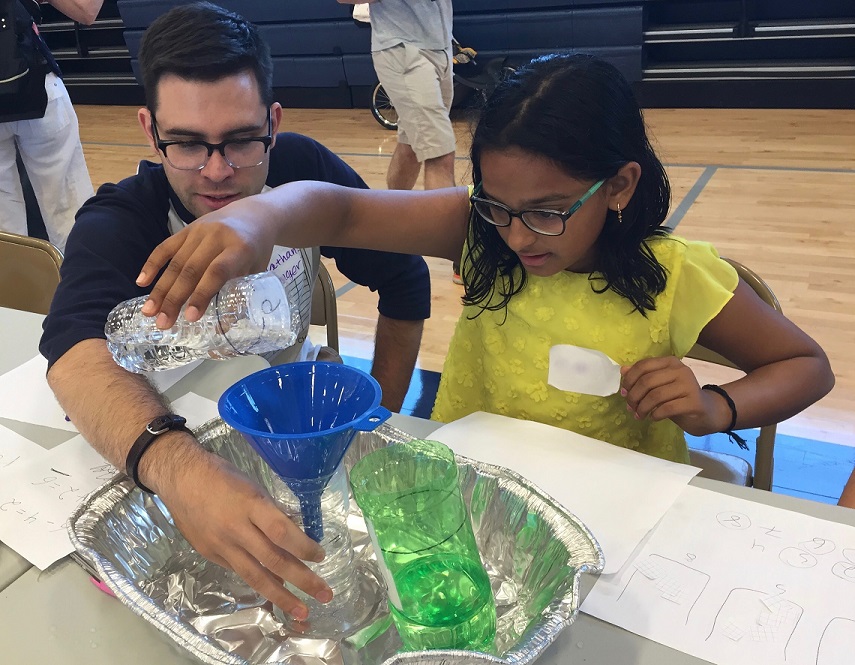
Kars4Kids: MC2 programs are offered free of charge. What entered into the decision to make your programming cost-free?
Doug O’Roark: We were fortunate enough back in 2011 to get an initial gift to get math circles started in Chicago where we could pay teachers and not charge a fee to students. Since then, we’ve grown our fundraising so that we’ve been able to keep the programming free—Kars4Kids is helping us continue this! So we’ve done it because we are able to do so.
But much more importantly, we don’t want there to be any barrier to a student joining a math circle. Our programs are free, and we hold them all over the city. We want to keep growing, stay free, and eventually have sessions in every neighborhood in the city. We want it to be clear that everyone is welcome.
Everyone is Welcome
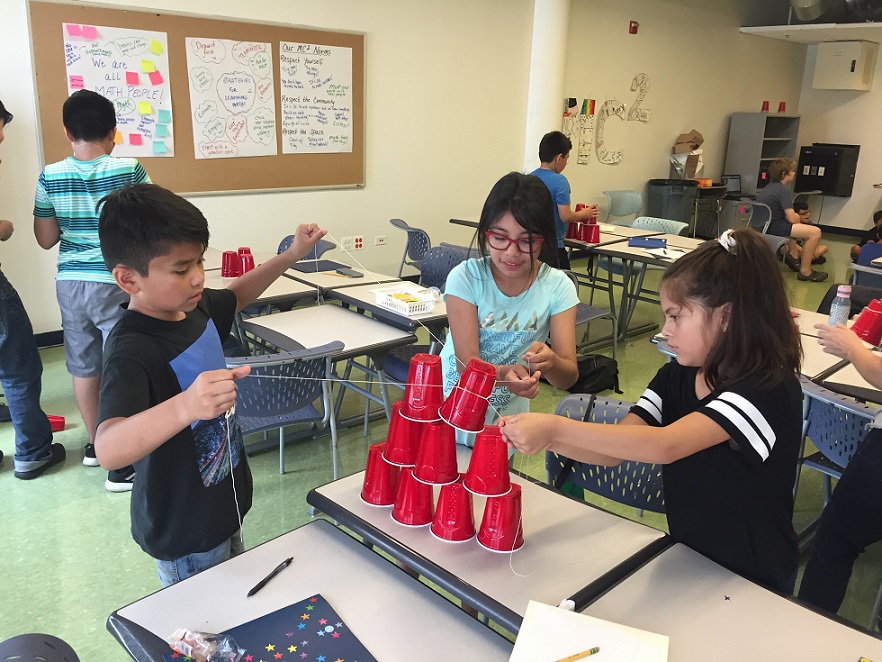
Kars4Kids: How do math circles work?
Doug O’Roark: No session is absolutely typical—sessions are generally standalone so that if you are absent one day you’ll be just fine the next time you attend. Almost every session does have a few key elements in common, though: (1) There’s a community builder, that may be mathematical or not. We want to get every student talking within the first 10 minutes of the session; (2) A puzzle, a game, a situation that makes students curious—so students might play a game like Nim, where the rules are very simple, and they almost immediately think about strategies for winning the game. The mathematics emerges from the game; (3) Students get a chance to ask their own questions. If it’s a game, they might ask about what’s the best strategy and how they could be sure that strategy was best, and they might wonder what happens when they change the rules; (4) Students share their thinking and make connections. They may see connections between what they did in math circles and in school, or with a different puzzle they did at another time, or a pattern that they’ve seen before. Notice that there are some things we generally do not do—we don’t give math lectures, and we don’t hold competitions. Our emphasis is on student agency and student collaboration.
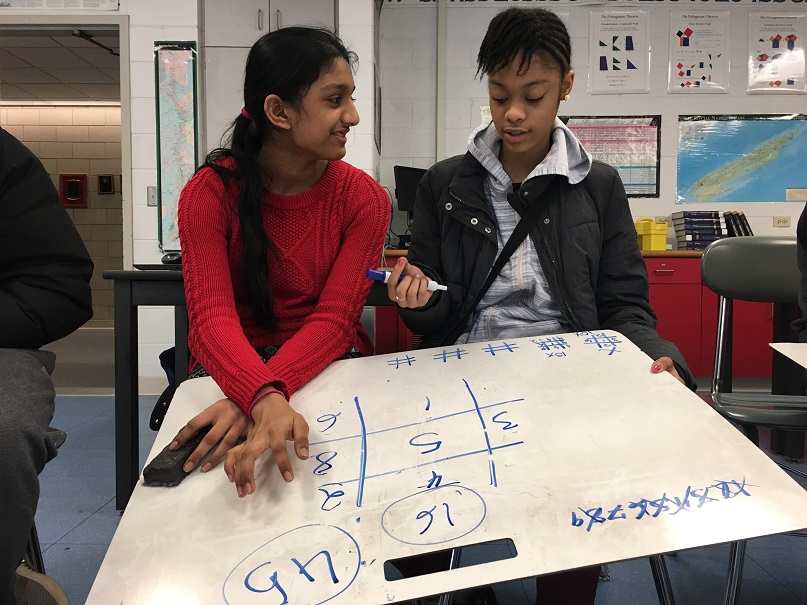
Emphasis on Exploration
Kars4Kids: Why do kids need math enrichment beyond what they receive in the classroom?
Doug O’Roark: There are many, many wonderful math teachers in Chicago. But the curriculum they teach from is often constrained, and the students’ view of math may be very limited. In math circles we study chaos, group theory, topology, game theory, continued fractions, non-Euclidean geometry—and, to be clear, we almost never tell the students that they are studying these things—we avoid “fancy language” until it’s developmentally appropriate. We want students to have a broader view of math than they may develop from school alone.
A lot of time can be spent in school learning procedures which, frankly, isn’t really doing mathematics—re-enacting a process that someone else is telling you how to do is fundamentally not mathematical. We’re trying to give students an experience where the emphasis is continually on exploration. It’s hard to emphasize exploration as much in school as we do in math circles.
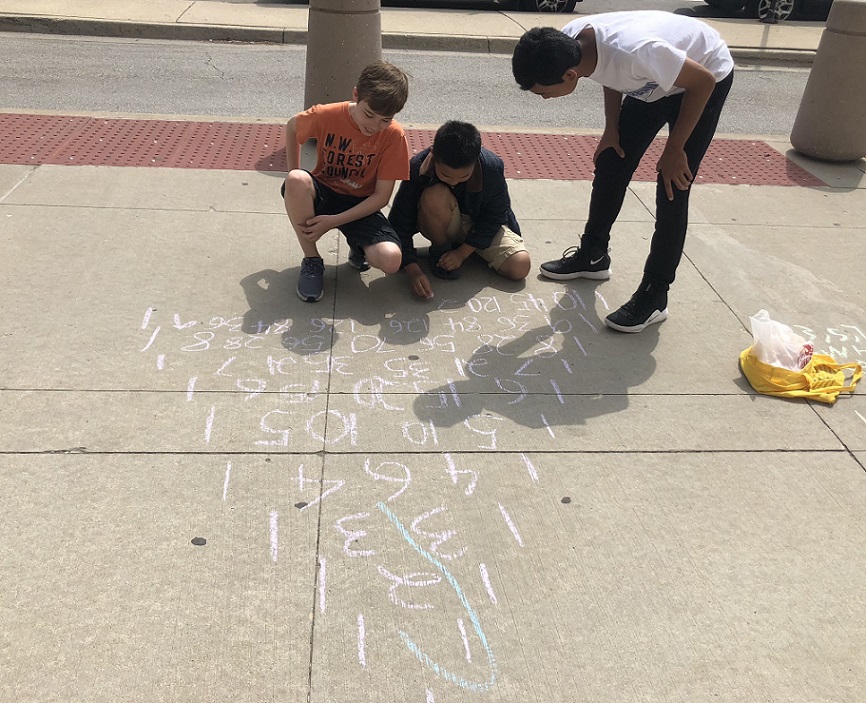
Kars4Kids: MC2 sponsors a program called QED. Can you give us an overview of this math symposium?
Doug O’Roark: A math symposium is very much like a science fair. Students come up with their own math or computer science research idea, explore it, make some kind of generalization and prove their result, and then present that result at QED. They write a paper and create a poster board, give an oral presentation to two judges, and receive detailed feedback from those judges. We use a rubric and rate projects as Successful, Distinguished, or Highly Distinguished. Note that QED is not a competition—we don’t rank projects against each other; we set a standard and students try to reach as high as they can.
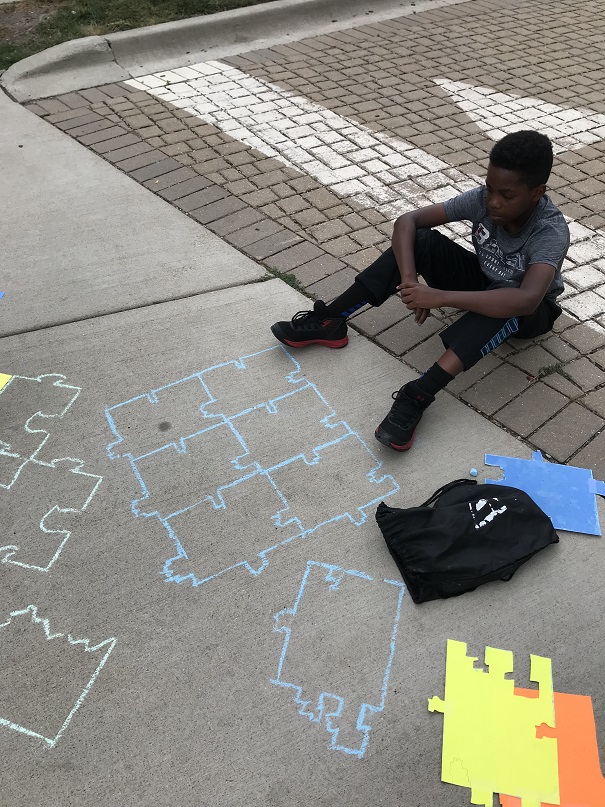
Math Circle Lottery
Kars4Kids: Tell us about your lottery.
Doug O’Roark: It’s fairly simple—for our 8 Hubs across the city, along with our online classrooms, students new to MC2 rank their top choices. Most students get their first choice. Students re-enrolling automatically get to keep their spots; otherwise Chicago Public School students have highest priority for students who enter the lottery. After the lottery, open spots are first come, first serve.
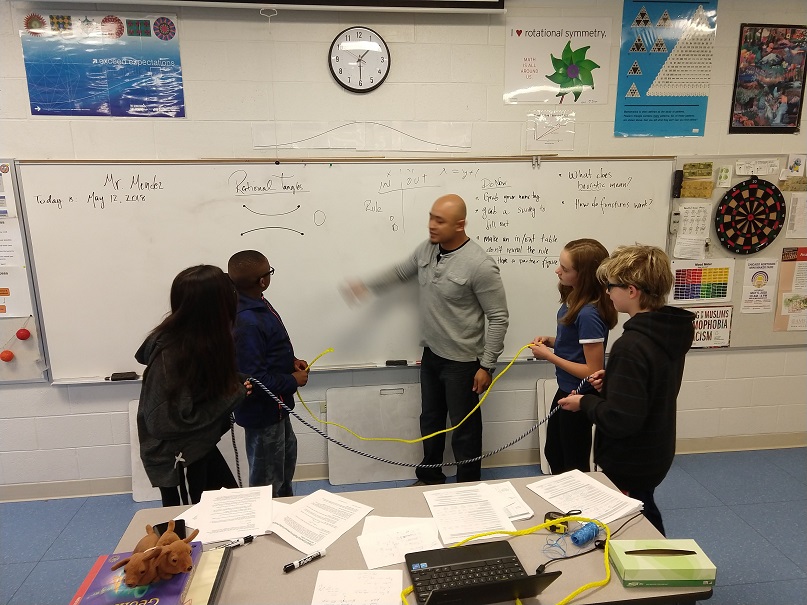
Kars4Kids: Can you tell us about your Math Circle summer camps?
Doug O’Roark: For the upcoming summer we are planning to have a two week, all day summer camp for Rising 6th, 7th, and 8th graders. We really want these to feel like true camps, with fun math circle activities like we usually offer along with “free math time,” athletics, breakfast and lunch, and more!
For high schoolers we are hoping that Eugenia Cheng, a world famous mathematician, author, pianist, and chef (!), will return to lead a camp. Dr. Cheng is the scientist in residence at the Art Institute, and has led camps for us for several years.
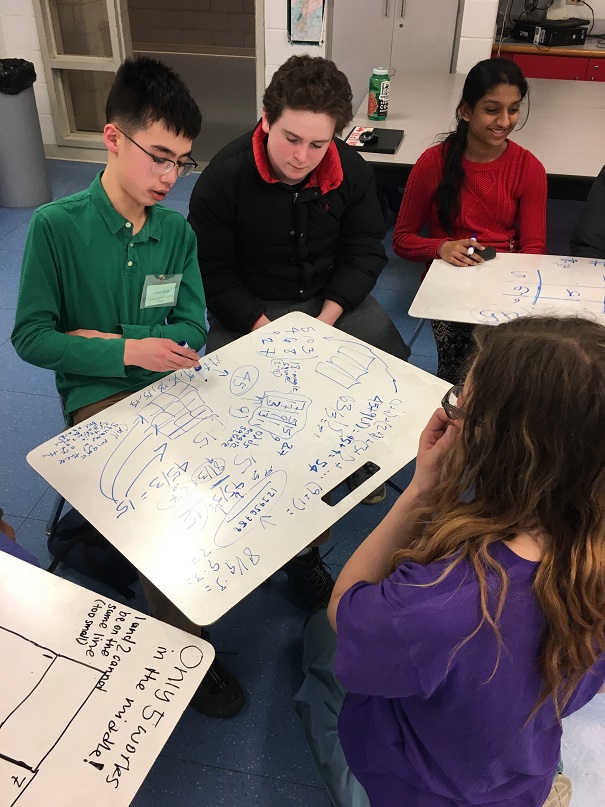
Kars4Kids: How has the pandemic affected your operations?
Doug O’Roark: We almost immediately moved all of our sessions online after the advent of Covid (I think it took us about two weeks to get up and running after Covid really struck in mid-March 2020). For the 2020-2021 school year, along with our 2020 and 2021 summer camps, we were online for all of our program levels. To support student collaboration, we generally had 3 teachers in every online classroom (usually led by a school teacher, and assisted by undergraduate and high school student volunteers). We learned a lot about offering online sessions and while we generally returned to in-person programming in the fall of 2021, we continue to offer four online classrooms and will be adding two more this winter. By the fall of 2022 I’m hoping our in-person Hub programs will get back to the enrollment we had in 2019 (800+ students), and at the same time we may offer online sessions at all 5 of our program levels. As for any program, Covid was a real challenge, but it was an opportunity to learn and grow too.
Coming Up Next
Kars4Kids: What’s next for MC2?
Doug O’Roark: As I said, we are committed to reaching all children. Our traditional programs are called ‘Hubs’—these are locations where kids come from many different schools. These are large but require a lot of administrative support and have limited geographical reach.
We have a new program that’s growing rapidly, that I think of when you ask “What’s next?” We call it Math Circles in a Box/MC2iaB. Here, our programs are led by teachers in their own after school programs. This is, of course, a traditional way to do an after-school program. We are starting to do this now because our activity plans are so well developed that we can hand them off to these teachers (while also providing coaching support and workshops) and they can lead them in weekly sessions with their own children. My hope is that by the end of this year we will be in 20-25 schools; in 5 years I hope this program will be running in more than 100 schools in Chicago.
We are also expanding by partnering with other STEM organizations that can incorporate our work into their programs. We already have an active partnership with Chicago Hopes for Kids to bring math circles into homeless shelters. We are working now to integrate our sessions into MAPSCorps programming, a program run by the Urban League, and Sunshine Gospel Ministry in Woodlawn. We are really just getting started here, but ultimately I think these partnerships can be a very cost efficient way to bring our activities and approach to even more children across Chicago.